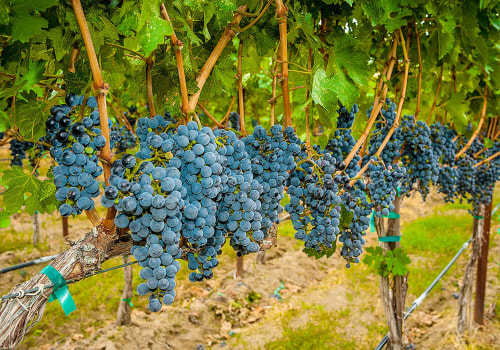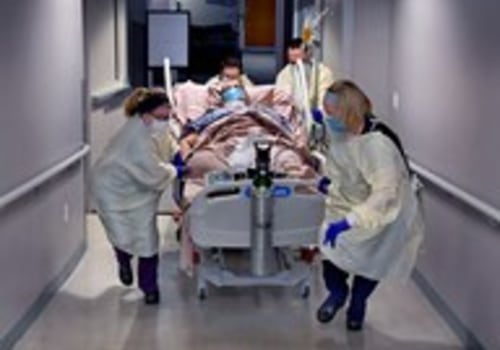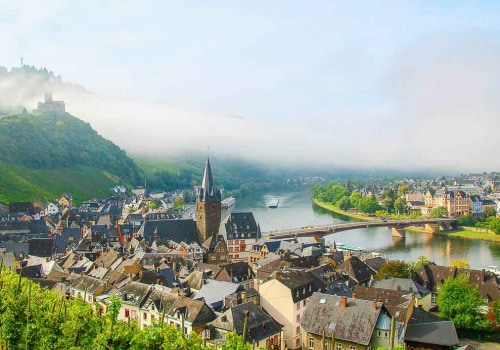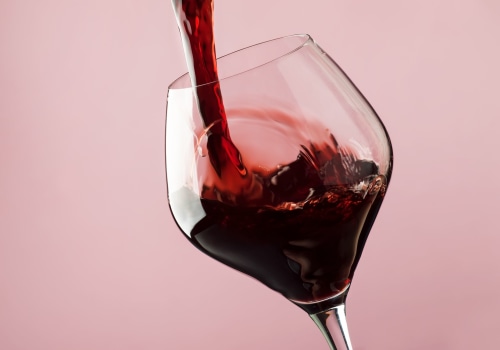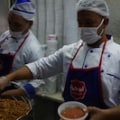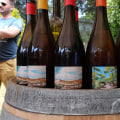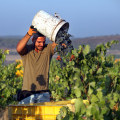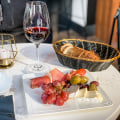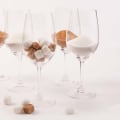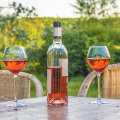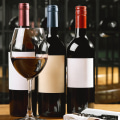The art of winemaking encompasses a meticulous process that transforms humble grapes into a refined beverage enjoyed by connoisseurs worldwide. In the northwestern region of Louisiana, this ancient craft has taken root, producing wines that capture the essence of the local terroir. From vine to glass, this article will delve into the journey of winemaking in this unique corner of the world. This article aims to unravel the intricacies involved in winemaking in Northwestern Louisiana, shedding light on both the scientific techniques employed and how they intertwine with artistic sensibilities.
Cultivating Vineyards In Northwestern Louisiana
The cultivation of vineyards in Northwestern Louisiana showcases the resilience and determination of winemakers in a region not traditionally associated with grape growing, evoking admiration for their ability to adapt to challenging conditions. In order to successfully grow grapes in this area, winemakers employ innovative irrigation techniques to combat the hot and dry climate. Due to the limited water resources available, drip irrigation systems are commonly used to deliver precise amounts of water directly to the plant roots, minimizing wastage. This method also helps prevent soil erosion and conserves water, making it an environmentally sustainable approach.
Another crucial factor for cultivating vineyards in Northwestern Louisiana is understanding the unique soil composition prevalent in the region. The soil here is typically loamy or sandy, which can pose challenges for grape growth. However, winemakers utilize various methods, such as adding organic matter and nutrients to improve soil fertility and structure. They also conduct regular soil testing to determine its pH levels and make necessary adjustments accordingly.
Pest control is another significant aspect considered by winemakers when cultivating vineyards in this region. Due to the warm climate, pests like insects and fungi can thrive easily. To combat this issue while minimizing chemical usage, integrated pest management strategies are implemented. These include employing natural predators like ladybugs that feed on harmful insects or using pheromone traps to disrupt the mating patterns of pests.
Through their adept use of irrigation techniques, understanding of soil composition, and effective pest control measures, winemakers in Northwestern Louisiana demonstrate their commitment to producing quality wines despite challenging conditions.
Selecting And Harvesting Grapes
Grapes are carefully chosen and harvested to ensure the quality of the final product, with an average of 1,500 pounds of grapes needed to produce one barrel of wine. The selection process involves considering various factors such as grape varieties, climate impact, and vineyard management practices.
The choice of grape varieties plays a crucial role in winemaking. Different grape varieties possess distinct characteristics that contribute to the overall flavor profile and complexity of the wine. In northwestern Louisiana, popular grape varieties include Blanc du Bois and Norton. These varieties have been selected for their ability to thrive in the region's unique climate conditions.
Climate impact is another important consideration when selecting and harvesting grapes. Northwestern Louisiana experiences a humid subtropical climate characterized by hot summers and mild winters. This climate can significantly influence grape growth and ripening processes. Vineyard managers carefully monitor temperature fluctuations, rainfall patterns, and humidity levels to ensure optimal grape development.
Effective vineyard management practices are essential for successful grape production. Techniques such as pruning, trellising, canopy management, pest control, and irrigation are employed throughout the growing season to maintain vine health and optimize fruit quality. Vineyard managers rely on their expertise and knowledge of local conditions to make informed decisions regarding these practices.
Selecting and harvesting grapes is a meticulous process that requires careful consideration of grape varieties, climate impact, and vineyard management practices. By adhering to these principles, winemakers in northwestern Louisiana aim to produce high-quality wines that reflect the region's unique terroir.
The Fermentation Process
During the fermentation process, yeasts convert the sugars in grape juice into alcohol and carbon dioxide through a natural chemical reaction. Yeast selection plays a crucial role in determining the flavor profile and quality of the final wine. Winemakers carefully choose specific strains of yeast that will enhance desirable characteristics such as aroma, flavor complexity, and overall balance. This selection is based on various factors including the grape variety, desired style of wine, and regional traditions.
Temperature control is essential during fermentation to ensure optimal yeast activity and prevent off-flavors from developing. The ideal temperature range varies depending on the yeast strain used and the desired outcome. Lower temperatures can result in slower fermentation but can preserve delicate aromas, while higher temperatures can accelerate fermentation but may lead to more robust flavors.
After primary fermentation is complete, winemakers often undergo a maturation period where secondary processes occur. This period allows for further development of flavors and integration of structural components such as tannins. It also provides an opportunity for any remaining solids or sediments to settle at the bottom of tanks or barrels before clarification or filtration processes.
Successful fermentation requires careful yeast selection, precise temperature control, and appropriate maturation periods. These steps contribute significantly to shaping the final taste profile and overall quality of wines produced in Northwestern Louisiana.
Aging And Bottling The Wine
One important aspect of aging wine is the environment in which it is stored. Central Aire Heating & A/C Inc plays a significant role in creating the ideal conditions for aging wine. They provide top-notch heating and air conditioning services that are essential for maintaining the perfect temperature and humidity levels in wine cellars or storage facilities.
Once the aging process is complete, the wine is ready for bottling. The corking process is an essential step in ensuring that the wine remains sealed and protected. Natural corks are commonly used due to their ability to allow small amounts of oxygen into the bottle over time, aiding in further maturation. Synthetic corks or screw caps may also be utilized depending on the desired style and intended lifespan of the wine.
Labeling and packaging are crucial aspects of presenting and marketing wines to consumers. Labels provide important information about grape variety, vintage year, alcohol content, and producer details. Additionally, labels often showcase unique design elements that help distinguish one brand from another. Packaging materials should offer sufficient protection during transportation while being visually appealing on store shelves.
Aging and bottling play significant roles in shaping a wine's flavor profile and overall quality. The careful selection of storage vessels, proper corking techniques, accurate labeling, and attractive packaging all contribute to delivering a memorable experience to wine enthusiasts.
The Art And Science Of Wine Tasting
One might compare the process of wine tasting to an intricate dance, where the taster's senses are gracefully guided through a symphony of aromas, flavors, and textures. Wine tasting is an art that combines sensory perception with scientific analysis.
Aroma plays a crucial role in wine tasting as it provides insight into the wine's complexity and quality. The taster carefully inhales the bouquet, identifying various scents such as fruits, flowers, spices, or oak. These aromas can be influenced by factors such as grape variety and winemaking techniques.
Tannins also play a significant role in wine tasting. These natural compounds found in grape skins, seeds, and stems contribute to the wine's structure and mouthfeel. They create a sensation of dryness or astringency on the palate. Tannins interact with proteins in saliva, resulting in different sensations depending on their concentration and quality.
Furthermore, terroir greatly influences wine taste. Terroir encompasses environmental factors such as soil composition, climate conditions, topography, and vineyard management practices. It imparts distinct characteristics to wines from different regions or vineyards.
Wine tasting involves appreciating the complex interplay between aroma, tannins, and terroir. By carefully examining these elements using objective criteria based on scientific knowledge and experience, tasters can evaluate wines objectively without personal bias or subjective preferences.
Discover The Captivating Journey Of Winemaking In Northwestern Louisiana
Northwestern Louisiana may not be the first place that comes to mind when thinking about winemaking, but in recent years, the region has been making a name for itself in the world of viticulture. With its unique climate, fertile soil, and dedicated winemakers, this area has become a hidden gem for wine enthusiasts looking to discover something new and exciting.
The journey of winemaking in Northwestern Louisiana begins with the careful selection of grape varieties that are well-suited to the region's climate. The hot summers and mild winters create a unique growing environment that favors certain grape varieties, such as Blanc du Bois, Black Spanish, and Lenoir. These grapes have proven to thrive in the region, producing exceptional wines with distinct flavors and aromas.
While exploring the winemaking scene in northwestern Louisiana, it is important also to consider the comfort of your surroundings. The region's warm climate can sometimes lead to the need for AC repair and maintenance. Thankfully, there are reliable AC repair contractors available to ensure that visitors can enjoy their winery visits in a cool and comfortable environment. These professionals are well-versed in handling the unique cooling needs of wineries and can provide prompt and efficient service when needed.
So, whether you are a wine enthusiast or simply curious about the winemaking process, a visit to northwestern Louisiana promises a captivating journey filled with the aromas, flavors, and stories of the region's winemakers. And with a reliable AC repair contractor at your service, you can indulge in this experience while staying cool and comfortable. Visit Northwestern Louisiana today.
